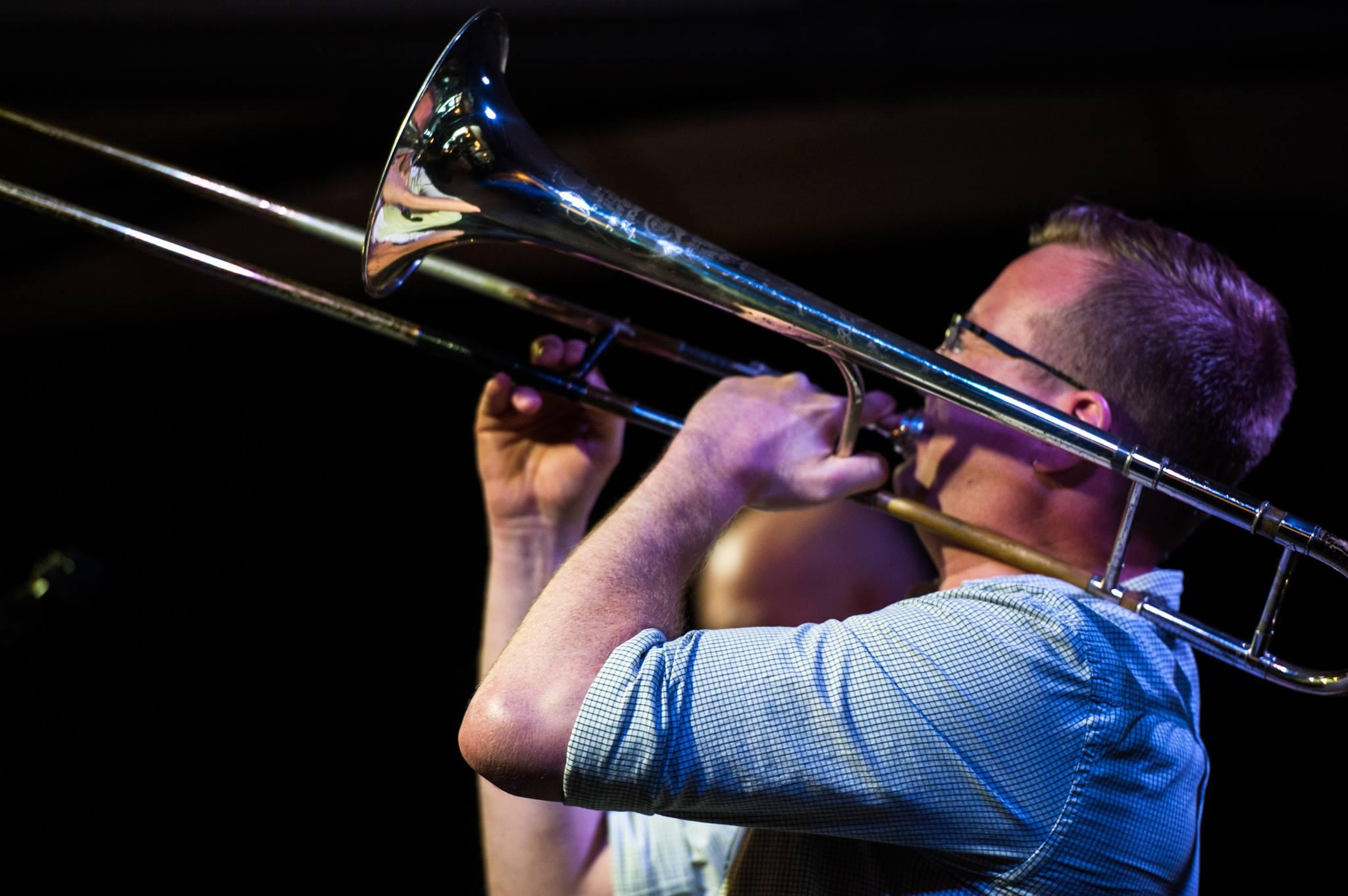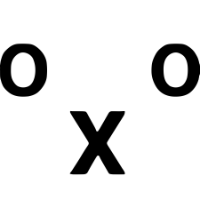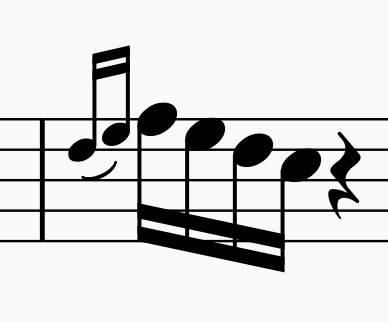-
Posts
5,078 -
Joined
-
Last visited
-
Days Won
41
robinjessome last won the day on December 5 2018
robinjessome had the most liked content!
About robinjessome

Contact Methods
-
Website URL
https://www.instagram.com/robinjessome/
Profile Information
-
Gender
Male
-
Location
Halifax, Canada
-
Occupation
Performer using various methods of noise making and trombonery; jazz/improvised musics...
Recent Profile Visitors
robinjessome's Achievements
-
TristanTheTristan started following robinjessome
-

Share your favorite Mashups!
robinjessome replied to .Em.'s topic in Music Appreciation: Suggest Works or Articles
https://tomcaruanamashups.bandcamp.com/album/enter-the-magical-mystery-chambers- 13 replies
-
- youtube videos
- favorite
-
(and 1 more)
Tagged with:
-
Ravels Radical Rivalry started following robinjessome
-

What makes a chord follow poorly or well from another?
robinjessome replied to Polaris's topic in Composers' Headquarters
It's all about voice leading and the voicing of the chord. Literally and chord can be followed by any other chord and it can sound good. ... it can also sound terrible. With poor voicings, even a ii - V - I can sound gross. -

Hiromi's Sonicbloom: Time Out
robinjessome replied to Monarcheon's topic in Music Appreciation: Suggest Works or Articles
I personally might tend towards the looser, more reactive approach; however, depending on the mood, I definitely do love something that's very carefully planned and weaves the looseness together in a more controlled manner. The early 2000s Metheny Group stuff I particularly liked. As well as a lot of contemporary large ensemble writing... but I definitely lean more towards the Mingus, Monk, Ornette school of thinking. Another great example of being loose and comfortable within a pretty controlled environment would be the Avishai Cohen trio stuff. (https://www.youtube.com/watch?v=JVijn6v_cLM - very complex metrically, harmonically - but it still feels very organic and natural) -

Hiromi's Sonicbloom: Time Out
robinjessome replied to Monarcheon's topic in Music Appreciation: Suggest Works or Articles
The Sonicbloom stuff seems fair bit looser and more adventurous, in a way. Metheny is more controlled. -

Hiromi's Sonicbloom: Time Out
robinjessome replied to Monarcheon's topic in Music Appreciation: Suggest Works or Articles
It's great - she's a top-notch player, Fuze is amazing as always. It's interesting because it's fusion-y, but also loose and weird. Which is good - hard to pull off that kind of energy with something that leans a bit smooth 😉 I assume you dig a lot of the Pat Metheny group stuff? -

Musescore Help
robinjessome replied to Youngc's topic in Music Notation Software Help and Discussion
^^ the handbook is pretty easy to follow - easy enough to get this: If the stroke-through line is important I suppose you could just draw a line through it. -

What are pieces everyone else likes that you don't?
robinjessome replied to Monarcheon's topic in Repertoire
-
Maybe you're trying to do too much at once. Harmony, rhythm, colour, tempo, melody, feel, orchestration, dynamics, yada yada yada... it's a lot of stuff to consider. SO. Try eliminating a lot of it. Limit various elements and focus on one thing. Take an existing harmonic progression, write a new melody for it. Take an existing melody and re-harmonize. Take a piano piece and re-orchestrate it for a string quartet. Take a piano + soloist piece and write some accompanying background figures for it. Or whatever. Artificially limiting yourself will force you to focus on one or two elements, you'll learn a lot along the way. You'll also write some terrible stuff. Embrace it. Eventually good things will flow. Don't expect any of these exercises to be actual, presentable pieces - it's homework. It's practice. They're musical workouts. You have to get in shape before you try and run the race. So, don't worry about being blocked. Knock away one block at a time, be patient with yourself and don't expect great things right off the bat.
- 8 replies
-
- 2
-

-
- composition
- block
-
(and 2 more)
Tagged with:
-

CMV: Music is intrinsically worthless.
robinjessome replied to Monarcheon's topic in Composers' Headquarters
...until you listen to it. Even so, the notes would hold a profound and specific meaning to the composer. The "meaning" is always there...just up for each listener to discover for themselves. Until it's heard, music is Schrödinger's cat. It's both meaningful and meaningless. It has the potential to be deeply moving, or instantly forgettable, or anywhere in between. Hardly worthless, I think. I won't bother trying to address the whole "100% convey what you feel" nonsense. There's countless papers and dissertations on semantics in music that do it better than I. That said...I don't think anyone should care what the composer is trying to force on you. What's more important is "what did you feel?" *shrug*- 23 replies
-
Like Darcy James Argue, the Opening of Kenny Wheeler's Music For Large and Small Ensembles had a profound and long-lasting impact on my writing and general musical appreciation. His last points resonate as something I think we're all striving to learn and understand in writing music. Digging into Kenny Wheeler's music is a great way to start: how to take stuff that is complex and make it sound simple how to take stuff that is methodically constructed and make it sound organic how to take stuff that is conventionally “wrong” and make it sound uncomplicatedly beautiful [READ] Introduction to a Particular Song (by Darcy James Argue) https://ethaniverson.com/guest-posts/introduction-to-a-particular-song-by-darcy-james-argue/ Read this, you'll be all the wiser for doing so.
-
Someone's been listening to Heavy Weather.
-

The Blues Scale is Wrong! (maybe)
robinjessome replied to JLMoriart's topic in Composers' Headquarters
I don't doubt that the theoretical ideas are interesting, it's just that this type of "high-theory" isn't my bag. I didn't mean to sound negative - what you're demonstrating is neat :P It's also something that top-level players kindof do automatically. A great big band lead trumpet will ride a little sharp on some notes to make it a little brighter and shine through. And sure, the blues scale feels better when you bend some notes one way or another - perhaps due to the physics of what you're exploring. In practice though, I doubt trying to define and use these concepts in any meaningful way will be easy ;)- 4 replies
-
- blues scale
- enharmonic equivalents
-
(and 2 more)
Tagged with:
-

The Blues Scale is Wrong! (maybe)
robinjessome replied to JLMoriart's topic in Composers' Headquarters
*shrug* To-may-to, to-mah-to. Also, if you're worrying about playing jazz with a proper quarter-comma meantone tuning system, then you're doing it wrong. Plus, I play trombone...so, I pretty much ONLY play in quarter-tones and out-of-meantone-tuning anyways! ;)- 4 replies
-
- 1
-

-
- blues scale
- enharmonic equivalents
-
(and 2 more)
Tagged with:
-

What will bowing the bell of a trumpet do?
robinjessome replied to Monarcheon's topic in Composers' Headquarters
It'll resonate and ring, like bowing the bars of a vibraphone; with a very clear and defined pitch (whatever pitch you get when you flick it with a fingernail). Trombone bells will work too, as I expect any brass bell will do.






.thumb.png.1e2763f479362bbb522da50d31ef2e50.png)


.thumb.png.8b5b433a341551e913a34392660bc95b.png)


